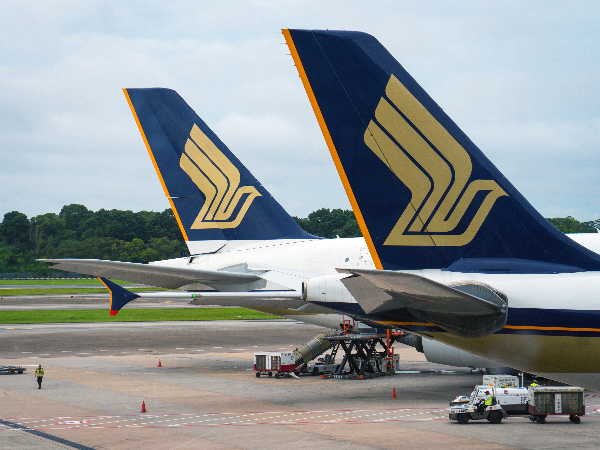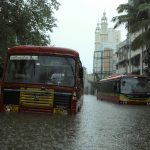
SINGAPORE: Singapore Airlines (SIA) Group said on Thursday (May 20) that it aims to operate at a third of its pre-COVID capacity by July, after posting a record loss of S$4.3 billion in the last financial year.
The company has also been looking for opportunities to expand its network, said CEO Goh Choon Phong in a virtual conference with analysts and media.
“We are fully supportive of a calibrated and safe manner to open the borders … we’ve participated in the RGL (Reciprocal Green Lanes) … and also the discussion and preparations for travel bubbles.”
Cargo has also been a “bright spot” with strong demand expected at least over the next couple of months, said Mr Goh.
SIA Group has been rebuilding its capacity since it was slashed to 3 per cent in April last year after Singapore closed its borders due to the COVID-19 pandemic. It was at 24 per cent last month and is projected to grow steadily to 32 per cent by July.
The group’s airlines include Singapore Airlines, SilkAir and Scoot. It also owns SIA Engineering Company.
When asked if COVID-19 “flare-ups” around the world will affect this, SIA’s executive vice-president for commercial Lee Lik Hsin said: “We think that much of this is actually backed by the cargo demand … (and) that continues to be robust. We believe that this is the right level we can operate at (in July).”
Cargo now accounts for 71 per cent of the group’s revenue, seen in a presentation by CFO Stephen Barnes. Revenue from cargo grew 38.8 per cent to S$2.7 billion in FY20/21.
Meanwhile, passenger flown revenue fell more than S$12 billion or about 95 per cent to S$684.7 million as passenger carriage plummeted 98 per cent.
REOPENING WILL NOT BE “SMOOTH SAILING”
When asked to elaborate on expectations for passenger demand, Mr Goh said he does not expect the reopening of borders to be “smooth sailing”.
“We do expect that any opening will be somewhat patchy because as you already have witnessed … infections can flare up in countries – look at Taiwan recently, look at even Japan, Malaysia and in Singapore for that matter.”
But he added that it is “good news” that people vaccinated against COVID-19 are less severely affected even if infected.
“With a combination of vaccination, testing regime, some guidelines on the rate of infections of different countries, we will be able to manage a calibrated and safe opening,” he said.
A recent example of how reopenings are “patchy” is the delay of the Singapore-Hong Kong travel bubble, which has been suspended twice.
Mr Goh said SIA saw “a lot of underlying demand” when the travel bubble was announced both last November and in April.
“The situation with the virus is something beyond anybody’s control. And what we need to be is to ensure that the organisation is flexible and nimble to respond to it,” he said.
COST-CUTTING, BUT NO MORE CUTS TO STAFF
The group also reported that it has reduced monthly cash burn to between S$100 million and S$150 million a month, down from about S$350 million a year ago.
Cash burn should remain “reasonably stable” at current levels, said CFO Mr Barnes. As the company rebuilds, it is working to ensure it covers variable cash costs, he said.
SIA has driven down costs by 60 per cent (S$9.6 billion) and has significantly reduced non-fuel expenditure due to capacity cuts, cost-saving initiatives and government support schemes, Mr Barnes added.
A “very significant reduction” in costs came from halving staff costs, which were down S$1.4 billion. Last year, SIA cut thousands of jobs, and reduced staff salaries and allowances. It said on Thursday that about 20 per cent of positions were reduced in FY2020/2021, and the pay cuts it has instituted remain.
In response to reporters’ questions, Mr Goh said there are no plans to lay off more employees. “It was already a very painful process for me personally when we had to do that. And I said at that point in time, that I hope not to have to go through (it) again … that remains true from my perspective.”
SIA Group’s S$4.3 billion loss last FY includes nearly S$2 billion of impairments largely on older planes surplus to requirements. It said that it does not foresee “impairment charges of this size” in the current financial year.
The group is now operating with 168 planes and is retiring five while expecting 24 new planes in the coming FY, as well as eight 737-8 MAXs.
The operation of the MAXs will be subject to regulatory approval as they remain grounded in Singapore and many other territories after two deadly crashes involving Lion Air and Ethiopian Airlines.
SIA Group also said it will issue S$6.2 billion of convertible bonds, underwritten by its majority shareholder Temasek Holdings, with more options for further debt financing if necessary.


